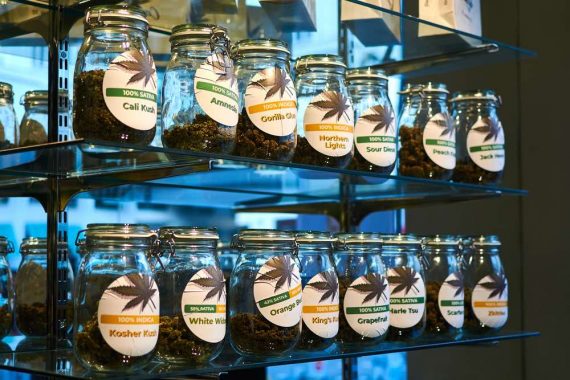[ad_1]
Some market observers predict that legal marijuana will be the next big thing. Constellation Brands, a global beverage company, has released top-selling wine brands and invested billions in cannabis in the United States and Canada.
Meanwhile, 39 states and the District of Columbia have legalized recreational or medical marijuana in recent attempts in Congress to remove federal bank restrictions.
So it’s only a matter of time before legal weed becomes available online, yes?
Difficulty.
Marijuana Online
“It’s still a state-controlled property, and as it is, there’s no interstate commerce,” said attorney Rebecca Stamey-White, a partner at Hinman & Carmichael in San Francisco. , whose clients include illegal drug dealers. “There’s the internet challenge. So what happens must be decided on a state-by-state basis, and will vary from state to state.

Federal law in the US classifies marijuana as a controlled substance, preventing its sale across state borders.
Given the problems, the question is not when retailers will be able to sell legal weed online but whether they can sell it at all, Stamey-White said.
So what do e-commerce marketers need to know to understand all this?
Medicine and entertainment. The first is the difference between “healthy” and “fun.” The former requires a doctor’s prescription. It is used to treat diseases – glaucoma, for example – and is sold through a state-licensed pharmacy.
Not all doctors are willing to prescribe marijuana. States may have different prescription requirements and conditions that can be treated with marijuana. If you can’t buy Allegra-D or Claritin-D online, it’s probably not a prescription drug.
Marijuana versus alcohol. The second need-to-know is better compared to the sale of alcohol, albeit with much stricter laws. Generally, non-prescription weed is sold through government-licensed dealers and only “adult” use is allowed by the government to specify that term.
A licensed broker must meet various criteria – which vary between states – including limits on the amount of sales in a single transaction and over a period of time.
Sales staff must be licensed by the state – a big difference to liquor dealers in many states – and meet minimum annual requirements. Online sales, customer orders, and occasional delivery are possible – with the caveat that the retailer must be state-licensed, use certified personnel, verify age and ID, and be eligible for completing the necessary paperwork. Few, if any, e-commerce retailers meet these requirements.
Banking, Commerce
The US government still classifies marijuana with heroin and LSD, despite attempts by Congress to do otherwise. This means that marijuana cannot be sold or transported across state lines, only within the relevant state.
Stamey-White did not say when or if that would change. Five previous attempts by Congress to change marijuana laws have failed, thanks to a decade of opposition among lawmakers with little support from the White House.
Prices. US banking laws prohibit illegal substances such as marijuana, forcing many legal merchants to go without banking services such as accepting credit cards.
So licensed dealers who take online marijuana orders must collect only cash and please the staff who operate it.
Marketing. Online sales are so busy, Stamey-White said, that dealers — licensed or otherwise — can sell weed but not related items, such as t-shirts, hats. , and hoodies.
Most states that legalize marijuana have laws for advertising and marketing. So any retailer who wants to sell a t-shirt with the store’s logo or the name of one of its products is breaking those laws. Is possible be legal, but make sure it’s a court case.
[ad_2]
Source link
